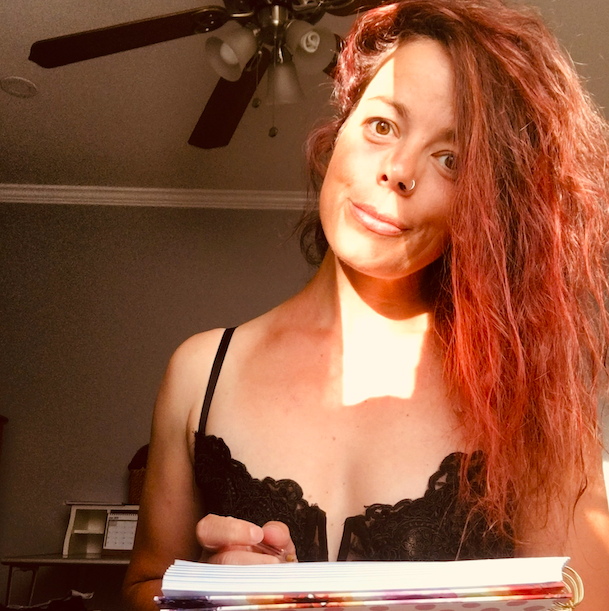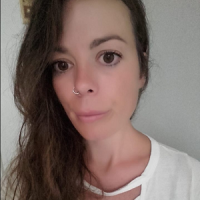I have a massive emotional wound from being abandoned.
I have a deep fear of being rejected for being me. This wound is unfamiliar to me—I am only able to see the tip of the iceberg.
This wound activates and turns my inner world upside down anytime life, or other humans, trigger my self-worth—anytime I feel powerless in the face of hardships, challenges, or struggles.
I feel abandoned by the entire universe. I feel lonely. I feel disconnected from the world around me. Other people walking beside me feel alien to me. I feel deeply disconnected from my core.
I have thoughts and internal processes to try and figure out why is this happening, but nothing my mind says can actually work to make me feel better. My thinking mind makes my emotional states even darker.
When this powerlessness is felt, there are two places I look: at my teary, sad eyes in the mirror, and at my heart by placing my hands on my bare chest to feel my skin and my heartbeat.
I become still, and sometimes, a river of tears begin to flow endlessly.
Feeling abandonment is like drowning in a dark river of despair. It feels strong, deep, and real. I feel so f*cking vulnerable I want to hide from everyone.
I tend to feel ashamed of my abandonment wound, but then I realize: when I experience this wound is when I’m able to get closer to my core and ask her what it is that causes her to feel this pain.
This wound comes from childhood.
My childhood was a stage of my life when most of my needs were not being met. I felt neglected, punished, criticized, and ridiculed.
The wound of abandonment might feel heavier and stronger for hyper-sensitive children, like I was.
As kids, we can feel abandoned when our skills, talents, and genius are not witnessed—when our gifts are taken for granted or not applauded by our parents or caretakers. We suffer from feelings of abandonment when we’re punished for wanting to play more instead of wasting time with boring homework.
We suffer from feelings of abandonment when we long to be told how important we are and how much we are loved, but instead, we are treated with neglect or irresponsible behavior by our caregivers.
We suffer from feelings of abandonment when we are constantly criticized and compared to other kids who are “better” than us.
We suffer from feelings of abandonment if we become co-dependent from having an anxious attachment style with our parents.
We suffer from feelings of abandonment when our parents or adult caregivers fail to see us or hold us close as we struggle.
Feelings of abandonment and fear of rejection go hand in hand. They are sister wounds. When we fear rejection from others we feel abandoned because we are unable to voice our needs and wants. We are unable to communicate our core needs in a way that is understood by others.
The root cause of having a fear of abandonment and rejection comes from feeling unworthy of what we desire or what we want or need from others.
How do we deal with these wounds?
We get closer to them even when they make us feel cold and alone. We feel them fully and allow them to deliver our powerful messages about our inner pains—our inner pains are there to actually connect us again to our core.
When we are disconnected from our essence, we suffer. We suffer all kinds of emotional wounds because of the thoughts and beliefs we are telling ourselves to be true without questioning them first.
Our thoughts and old beliefs are often seen as truth. What we used to believe as kids may haunt us in our adult life until we begin to question those beliefs.
If our fear of rejection or abandonment wounds show up anytime we are made small, ridiculed, or rejected by others, we need to go within and feel this wound all the way to its root in order to find where it’s coming from.
As adults, it is our responsibility to keep questioning our current beliefs and see how they shape our day-to-day life. It’s not an easy process. It cannot be done in one night or one week—it’s a lifelong process of healing from the inside out.
We try so hard to fix our external world and often think it’s our fault for how we feel.
But the truth is, if we pay attention, we can see where our wounds come from and it is our responsibility to shift the beliefs that are untrue.
It takes time to heal. And that’s okay.
Let’s take all the time we need to heal—to heal our inner child and our adult selves.
And as a result, we’ll heal the world.


 Share on bsky
Share on bsky





Read 1 comment and reply